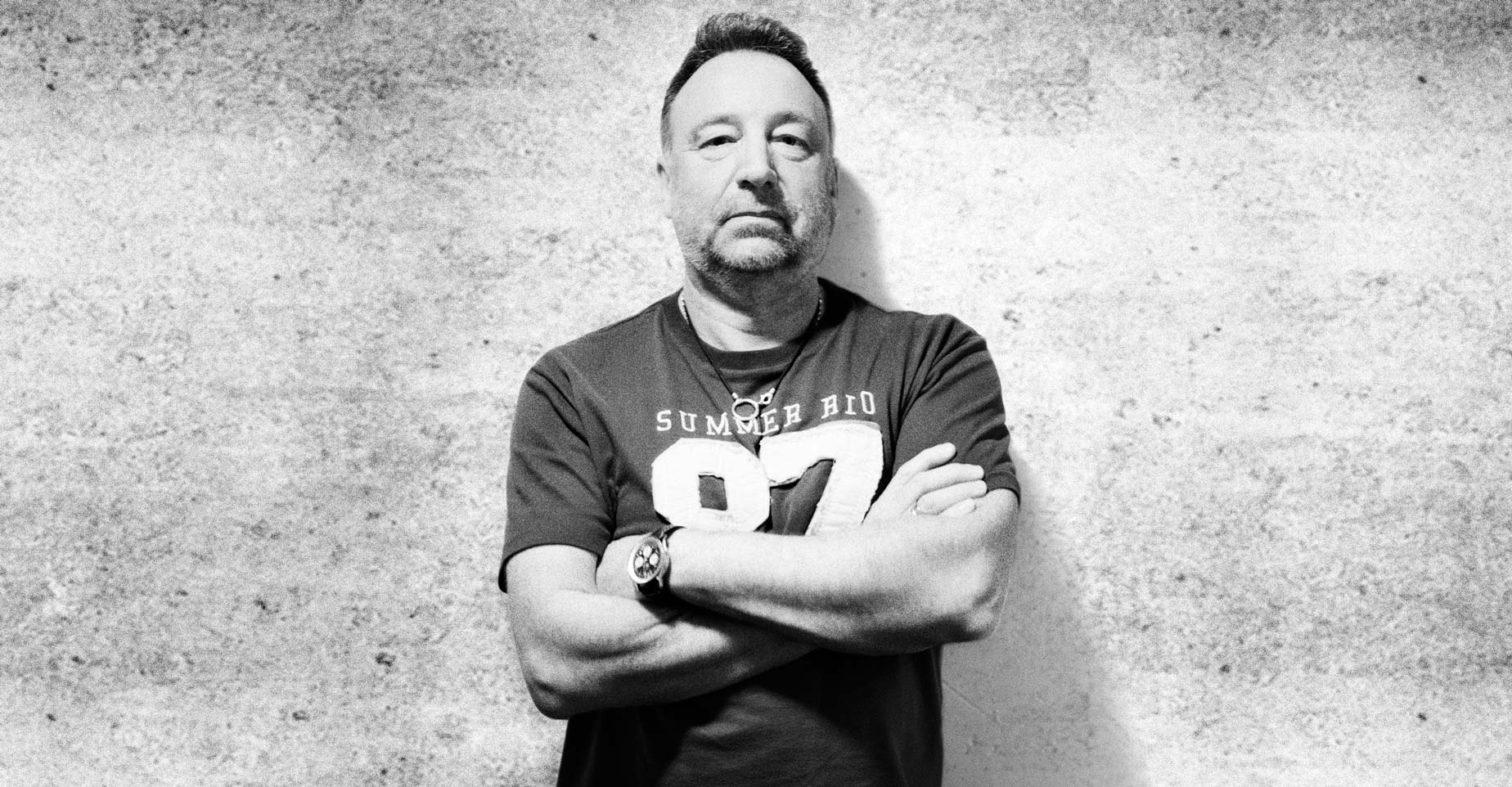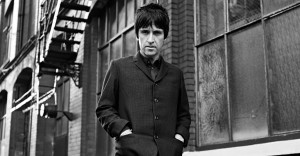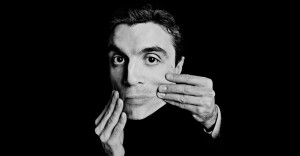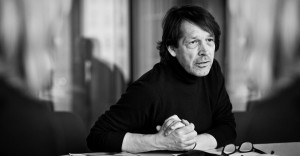Mr. Hook, does success make it difficult to create good music?
It tends to make musicians boring, doesn’t it? Boring music. I suppose we have to thank the gods for our many fracases with the tax man and the fact that we kept a whole city in Manchester entertained at our expense for 16 years while we lived, shall we say, very modestly. It’s an interesting concept, but I don’t recommend it to any other group.
But that’s partly why New Order and Factory Records became such indie role models in the ’80s – it wasn’t about the money.
Yeah, and it worked well for us. It enabled us to grow at a slower pace and to not get carried away too early. We had a lot of financial problems in England because of the nightclub that we had. We lost millions and millions of pounds. It kept us very poor and very bitter. And because of that we made great music.
You recently said that being in New Order was like being in an indie version of Mötley Crüe. I read the Mötley Crüe memoir The Dirt and I doubt you guys were that out of control.
The ’80s were a very decadent period and we fell for it hook, line, and sinker. We did have many adventures, and I must admit I met some wonderful, wonderful girls all around the world, and I had a fantastic time. People always say, “Being in a group is God’s way of getting ugly men laid,” and, well, it worked in my case! I’m grateful to God for inventing groups for that purpose! The best time we ever had touring was in America. Every decadent wish you had was fulfilled. It really was pearls before swine. While we were projecting this very cool independent image, really we were just doing exactly what Mötley Crüe did.
What did you mean by more indie?
We were still on an independent record label and we never had tour support as a group – when the record company pays the expenses for you to tour because it pulls up the sale of the record. Everything we did, we had to earn. We never borrowed money from our record company and that enabled us to keep a high level of independence in the way that we acted as a group. It was also non-promo. We didn’t do t-shirts, we didn’t put the singles on the LPs, the sleeves never featured our faces, for a long time we were never in our videos. Most people would actually say it was commercial suicide! The decisions and the way that we were acting as a group were totally anti-everything that had ever gone before.
Why?
It came from punk. We had those punk credentials. But quite a lot of things you used to rally against when you were younger, things that you felt were life-changing, all of a sudden blend in to everything else. They don’t have such importance when you get older.
Of course, as you get older your desires change.
You realize the important things in life as well. If you look at any kind of addiction – because these things always lead to addiction – the bit where you’re having fun doing it is pretty soon eclipsed. I wasn’t having fun. It started off as a bit of fun; drugs, drinking, getting leathered all the time. It soon turned into a nightmare. And if that’s one salutary lesson that you can give people is that ultimately anything that acts in that way on you will destroy you. High on life, that’s my motto!
You sound like my mom…
(Laughs) How old is your mom?
She’s exactly your age.
There you go!
Your son now tours with your band, Peter Hook and The Light. Do you worry about him going into the same line of work?
Well, do you know what’s sad is now that my son is here there is none of that behavior! I’m an alcoholic and a drug addict and I’ve been clean for ten years now. I can’t even allow it anywhere. My son, unfortunately – well, fortunately for me – has certainly come into the wrong band. I keep telling him he needs to form his own band and act up – because I’m past it to be honest. Most musicians of my ilk, like Johnny Marr, Ian Brown, you name them, they’re all sober. They’ve all been through it and come out the other end. I would imagine most of Mötley Crüe are all alcoholics now. Look at Aerosmith, it’s the same thing. It’s something you do when you’re young and wild, and then as you get older it becomes very difficult.
Why did you start playing Joy Division songs on tour with your own band after New Order broke up in 2007?
When Ian died in 1980, we concentrated completely on New Order. I must admit, it worked. It made New Order a huge international success, and it sort of buried the ghost of Joy Division. But looking back now, it makes you wonder, “Why? Why did you do that?” I think it must have been a reaction to the grief. We lost 60-odd Joy Division songs. We never played them as New Order. It never crossed our minds throughout the 26 years of New Order to play those songs. When it came to the 30 year anniversary of Ian Curtis’ death in 2010 it just struck me as very odd. At the time I had no contact with Bernard and Stephen – relations were very sour to say the least, because of New Order – and it seemed natural to do it on our own.
And since then you’ve started playing complete New Order albums on tour as well.
After losing all these songs for as long as I did, I worked very hard to keep the whole lot of them active. So between us, me and the band can play about a hundred songs, which is about six or seven LPs. Unknown Pleasures, Closer, Still, Movement, Power, Corruption & Lies, and Low-Life and Brotherhood. We keep them all going. It was bad enough losing all the Joy Division tracks as I did for 30 years, and I’ll be damned if I’m going to let them go again.
Ian Curtis was 23 years old when he died. Is it weird for you to sing those songs now that you are in your late 50s?
It hasn’t really struck me. But the great thing I’ve found is that when we recorded Joy Division, was that it sounded like music that had been made by much older people than us at 21. It sounded much more mature than most groups. It was quite an odd thing, really. Unknown Pleasures as an album has a timeless quality, really, that crosses the decades easily. We played in Santiago, Chile, last night, and the audience was mainly 18 to 25. I’m looking at it and thinking, “Fuck me, I’m an old bloke! (Laughs) This is fucking weird!” I was expecting it to be filled with old blokes like me. Joy Division still has a magic that people can tune in to, and I can only thank God for that because it’s kept me in a job that I love for many, many years.
Where does that magic come from?
Great music seems to come from a lot of angst, and that angst is from great musicians getting together with intense chemistry. When that chemistry isn’t there, people tend not to write great music.
So collaboration is key?
It really is about chemistry. When you get the right people together, writing music becomes very effortless. It’s quite interesting. Rob Gretton, our manager, always used to say to us that if we put as much effort into New Order as we did into our solo projects, we would be bigger than U2. Believe me, I’ve noticed that our solo projects were never as good as the way we were together. It’s a very weird thing. New Order and Joy Division had that spark. If you knew how to manufacture that spark, you’d bloody clean up, wouldn’t you?
Return to Top

Short Profile
Name: Peter Hook
DOB: 13 February 1956
Place of Birth: Broughton, Lancashire, England
Occupation: Musician
Peter Hook and The Light are currently on tour in North America performing the classic New Order albums Low-Life and Brotherhood





















Comments
write a comment, read comments